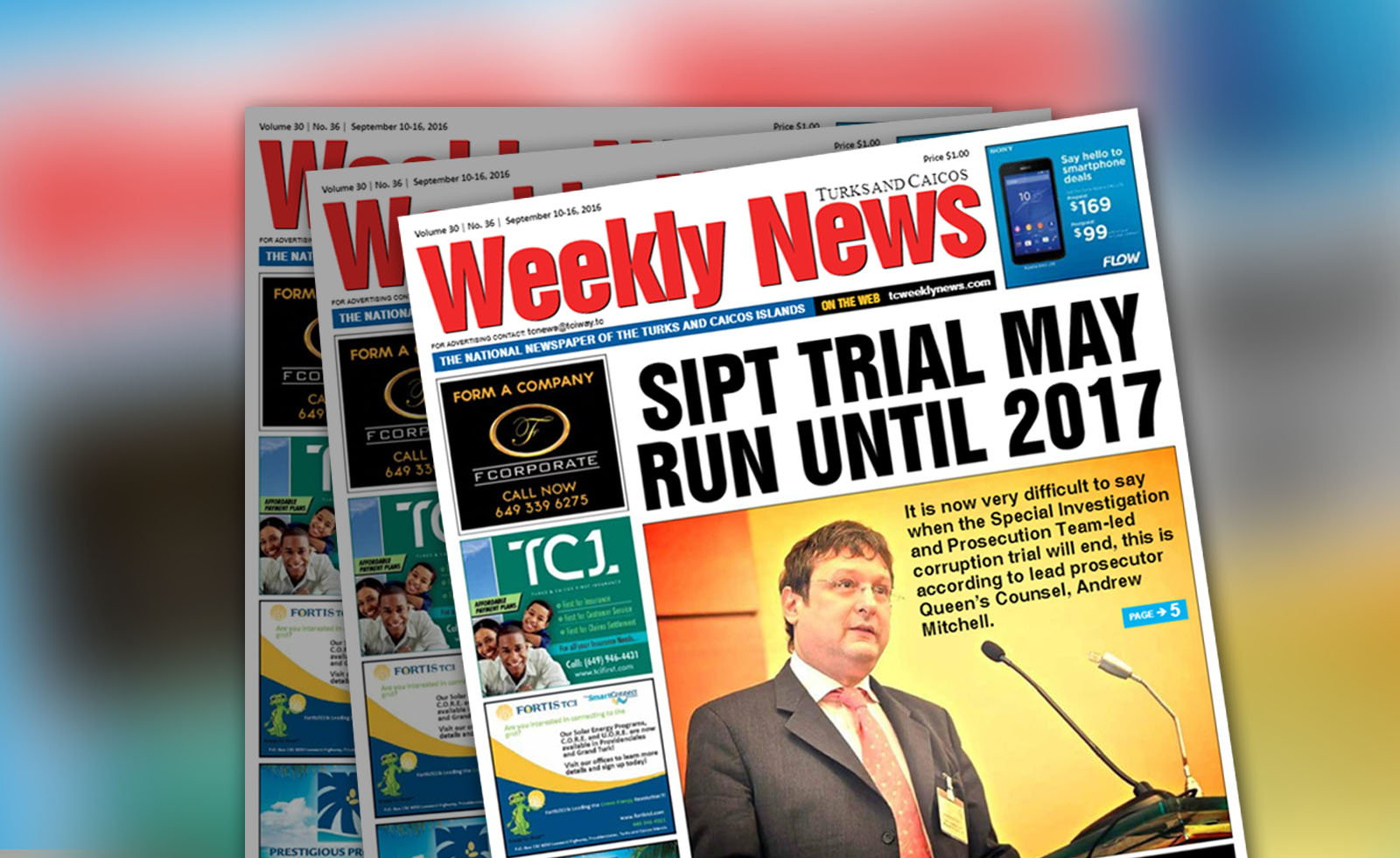Chief Justice Mabel Agyemang handed three judgements in the SIPT case this afternoon (Friday, May 7), ‘splitting the baby’ on the main application, dismissing another outright, and granting portions of the third one.
Main application:
Abuse of process The abuse of process applications – one of which was filed by six defendants and another one by Michael Misick alone – sought to stay a continuation of the criminal proceedings of the defendants for various crimes charged under the umbrella of corruption in public office.
In her verdict on this application, the Chief Justice stated: “I find that while there is some merit in the defendants’ arguments… I also find that this is not altogether a lost cause, as a fair trial is still possible and the integrity of the court will be upheld in a retrial which is properly managed to a speedy conclusion.
“With these in mind I order a temporary stay of proceedings on the ground of a lack of a trial on the new information. In an attempt to grant a fair trial, the Chief Justice made the following orders:
“One, the prosecution of R v Michael Misick and others is temporarily stayed until 31st of May, 2021.
“Two: on or before the 31st of May, 2021, the prosecution, if desirous of continuing with the prosecution must present to the court certain information to make possible an expedited trial.
“Three: with reference to the judgment on the extradition of the first defendant (Michael Misick)… in any information charging the first defendant with offences, the charges of conspiracy to defraud must be excluded.
“Four: should the prosecution fail to comply with the time, or fail to sever the trial to permit a speedy retrial as ordered, the stay may be made permanent on the application of any or all of the defendants…”
“Five: In the event of a retrial proceeding on a judge alone trial, an order is made for the trial to be expedited. “And lastly, in the event of the conviction of any of the defendants, the prejudice suffered by reason of the failure of this court to try the defendants within a reasonable time must be taken into account in any sentence to be imposed, including for parity sake, and due consideration for proportionality the sentence of Lillian Boyce.”
Constitutional motion dismissed
The constitutional application dealt with a constitutional motion brought by six of the seven remaining defendants, save for Clayton Greene. That motion was presented to the court late in March by Queen’s Counsel Ariel Misick on behalf of Michael Misick, Floyd Hall, McAllister Hanchell, Jeffrey Hall,, Thomas Misick and Melbourne Wilson.
The constitutional motion sought relief in the form of a declaration that the continuation of the proceedings in any form or manner contravenes or is likely to contravene the protection of law of Section 1A of the 2011 Constitution to the right to a fair trial within a reasonable time under Section 6(1) of the Constitution.
They also sought a further or alternative declaration that the continuation of the proceedings in any form or manner contravenes or is likely to contravene the preamble and or written constitutional principle of the rule of law, and an order dismissing the proceedings.
Reading from the last page of her judgement, the Chief Justice stated: “This court has both inherent jurisdiction and jurisdiction under order 18, rule 19 (1) of the rules of the Supreme Court 2000 to prevent abuse of its process by striking out such processes.
“Having found that the present application was pursued in the circumstances of a double headed attack, and in the face of section 21 sub 2 of the Constitution, I find in consequence that it has no bona fides and appears to be contrived for the possible purpose of increasing the chances of the plaintiff’s success in the complaint against the defendant [which is the prosecution in this case].
“It is also undoubtedly vexatious as it has been against the defendants, one of whom is faced with the alternative of an application for a stay of abuse of the court’s process. “Even so, I will stop short of describing it as frivolous and altogether as an abuse of the court’s process.”
The Chief Justice said she would not strike out the motion in accordance with the Order 18 through 19 B and D of the Rules of the Supreme Court 2000, but will instead, acting on section 21 subsection 2 of the Constitution dismiss the application in favour of the other application (Abuse of Process), properly brought in the trial process which provides an adequate common law remedy. She stated: “It is unnecessary in the circumstance to consider the arguments conversed on behalf of the plaintiff. The originating summons seeking the constitutional relief set out… is accordingly dismissed.”
Extradition application
A third application was brought by counsel for Michael Misick. In this application, Misick raised concerns with his extradition from Brazil on January 7, 2014. The concerns relate to the propriety of his extradition as well as the propriety of the charges that have been brought against him in the new information presented on March 3.
He contend that a trial on the information of January 2016, and the impending retrial on the information constitutes an abuse of the court’s process. For these reasons, Misick sought a declaration that the proceeding against him on the new information is an abuse of the process of the court, for which reasons the retrial cannot be permitted to commence against him. Misick therefore sought a stay of the proceedings against him.
The Chief Justice said that having considered the arguments of the first defendant in relation to the issues he has raised concerning his extradition from Brazil and the charges he now faces, she finds that there was no wrongdoing in his extradition either by the government of the Turks and Caicos Islands, the government of the United Kingdom, the Foreign and Commonwealth Development Office or any combination of the three.
“The extradition was lawful, not oppressive, not disproportionate and properly effected in order to bring a fugitive from justice to the place of alleged commission to answer for the alleged offences for which a warrant had been issued and for which his co-accused ministers in his government were standing trial.” She also found that the Misick is entitled to invoke the Treaty of Protections, and to invoke the rule of speciality in relation to the offences he has been charged with in the retrial.
A third finding by the Chief Justice, states: “In accordance with the rule of speciality, count two, four and nine which charge the first defendant with conspiracy to defraud must be excluded from the charges against the first defendant as they are not within the scope of the extradition of the first defendant, not being the offence for which he was extradited or an extraditable offence to satisfy the double criminality rule.”
The Chief Justice said that it would therefore be an abuse of process to try Misick on the conspiracy charges “as he should not have been charged with it at all”. “I therefore order that should there be a trial at all, the said charge of conspiracy to defraud in counts two, four and nine against the first defendant be taken out of any information that may be brought again.”
Additional resources:
- (ABUSE-OF-PROCESS) 2012-CR-35-38-40-44-2014 CR-18 R v Michael Misick et al ABUSE-OF-PROCESS 7 May 2021
- (EXTRADITION) 2012 CR-35-38-40-44-2014 CR-18 R v Michael Misick et al EXTRADITION 7 May 2021
- 2021 CL-17 Michael Misick et al v DPP & AG 7 May 2021
- ES 2021 CL-17 Michael Misick et al v AG & DPP
- ES ABUSE OF PROCESS R v Michael Misick and Others
- ES R v Michael Misick et al EXTRADITION


